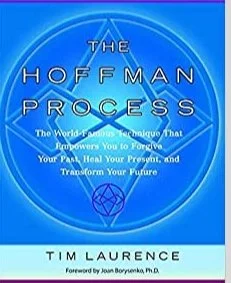Self-discovery: How deep are you willing to dig?
I’m a bit of a self-discovery junkie. I value self-development, spiritual exploration and the discomfort and challenge of questioning myself. The process of being uncomfortably vulnerable, digging out the things I must work on, embracing the lessons I have learned and recognizing what I still need to heal from.
How deep are you willing to go to know yourself better? To face your deepest sorrows, heartbreaks and loss? Understand the root of your fears, and the origins of your emotional triggers?
I asked these hypothetical questions to my close friends and got mixed feedback. Some were willing to explore to a certain point, others had no interest in delving into painful memories: “Why open Pandora’s Box and relive the whole painful experience again? I’m done.” Only a limited few were quite open about unearthing and facing their past in order to “unclutter” the path ahead.
(Image: vlad-gedroics-unsplash)
If the idea of healing your inner child by quelling your beliefs and fears makes you cringe, then maybe this is not for you. But then again, it might be just what you need and unquestionably a journey for you.
Do you identify with some of these statements?
● I feel stuck. Something is holding me back. I want to expand the possibilities in my life.
● I work compulsively, often to avoid other aspects of my life. It impacts my relationships and happiness.
● I have a difficult relationship with my children and I want to be a better parent.
● I feel anxious or nervous for no reason. I need help to sort my emotions out.
● I know what I should do but often cannot generate the will to do it.
The Process is an effective program for people who experience depression which is the stress of stress, anxiety, and/or repressed anger. (Image: 123rf.com)
In search of a new retreat, I came across The Hoffman Process and became quite intrigued by its approach, techniques and reviews.
Psychologist and best-selling author Oliver James says of the Process: “It is the most systematic method I know for properly exploring the role of childhood as well as offering a motorway back from the past. While many of the techniques it employs are not in themselves original, the combination of them is and so is the fact it is done as an eight-day residential course.”
This Process is designed to help identify negative behaviors, moods and ways of thinking that developed unconsciously and were conditioned in our childhood. Its aims? “To help you become conscious of and disconnected from negative patterns of thought and behaviors on an emotional, intellectual, physical and spiritual level to make significant positive changes in your life. You will learn to remove habitual ways of thinking and behaving, align with your authentic self and respond to situations in your life from a place of conscious choice,” writes founder Bob Hoffman.
A child’s sense of security, safety, and well-being is determined by the quality of his/her emotional relationships with his/her parents. A parent’s understanding, attitudes, and behaviors influence the quality of a child’s development. (Image: stock.com)
Hoffman uses various tools, from visualization to deep meditation, some Eastern mysticism and group therapy, condensing a lifetime of analysis to eight days. It has become, for many people, a life-changing experience that unroots negative habits and behavioral patterns.
The principal belief of the Process is the importance of the unique history of our childhood. This is what psychotherapist Alice Miller calls the drama of being a child. “In order to become whole, we must try to discover our own personal truth, a truth that may cause pain before giving us a new sphere of freedom,” she says. Everything we do as children is to obtain our parents’ love and approval. It shapes who we are and how we operate in the world. The process provides the tools and experiences we need to look at who we are objectively and stop repetitive and sometimes destructive patterns.
Tim Laurence is the founder of Hoffman UK and author of the definitive book on The Hoffman Process. He trained and worked extensively with Bob Hoffman. The book is packed with moving personal stories to help you start implementing change in your life. (Image: Goodreads.com)
Unlike other similar personal development courses, it’s almost impossible to find outright criticism of the Hoffman Process. If you look for feedback online you’ll find countless validations and almost no bashing.Charles Ingrasci is a UC Berkeley graduate and has been an executive, consultant and facilitator since 1972. Along with being a Hoffman teacher, he founded the Hoffman Institute Foundation in 1998.
“The Hoffman Process is the most highly effective method for people to heal, discover their true nature, and live a free, open, loving and spontaneous life.” His passion for teaching the Hoffman Process is both professional and personal; it brings him into the depths of human experience where he learns at least as much as he teaches.
One of the most profound things taught is learning how to connect with the Quadrinity — the four essential parts of self: body, intellect, emotions and spiritual self.
Much work is done on identifying feelings in the physical body, as much of our personal traumas are stored in the body, and by tapping into it and expressing it, immediate healing occurs. Other exercises include assessing the age of your emotional self. Although we age and mature, often our emotional self gets stunted and we tend to react like an eight-year-old in adult situations.
Everything we do as children is to obtain our parents’ love and approval. It shapes who we are and how we operate in the world. The Process provides the tools and experiences we need to look at who we are objectively and stop repetitive and, sometimes, destructive patterns. (Image: istock.com)
“We encourage people to lean into the pain that they’re carrying, with awareness, guidance and observation,” says Ingracsi. “People learn to become more comfortable about the parts that were painful or shameful. And a wholeness comes from doing that.” In practice, the process includes journaling, guided visualizations and lectures administered in individual and group settings. The curriculum focuses on Bob Hoffman’s proprietary method to combat the “negative love syndrome,” a term he coined for the theory that suggests we unknowingly repeat relationship patterns learned from our parents. The Hoffman Process helps participants “unlearn” these negative behaviors and thereby begin a journey of “self-understanding,” says Ingrasci. Such clarity does not come cheap, but it might be the investment of a lifetime if it can do to our lives what it claims.
Let’s delve deeper and find out more through some frequently asked questions:
What is The Hoffman Process?
Founded in 1967 by Bob Hoffman, The Hoffman Process is based on the Negative Love Syndrome. The weeklong Process provides a safe, supportive environment in which participants identify and begin healing negative patterns of feeling, thinking, and behaving in any kind of relationship. It’s an “inward bound” journey from head to heart, designed to be safe and supportive. The Process combines the best of group and individual work, to support your journey. Teachers use experiential learning and employ an empathic, supportive approach that respects each person’s feelings.
What is experienced learning?
You are led through a series of experiences and activities that allow you to regain access to the different parts of yourself – parts you may normally keep suppressed or which you may close off from yourself.
As the journey of the Process unfolds, you are guided day-by-day, hour-by-hour, and able to be present to what is happening in each moment, without having to think about what’s coming next.
Who should attend?
The Process appeals to people who are looking for concise and real results to get to the bottom of what is holding them back from a fulfilling life. They want more love, success, creativity, peace, and empowerment in their lives. Process participants come from all income groups, professions, cultures, and spiritual beliefs. They range from age 21 to over 80. Despite varied backgrounds, those who come to the Process have a sense of dissatisfaction and a deep desire to change.
Can I attend with my best friend?
Because this is unlike “other retreats” and it is a highly individualized inward journey, it’s not recommended to take the Process with a friend, or someone you know. It could be challenging for participants to completely focus on doing their own work if they are paying attention to or checking in on someone they know in the room. Putting one’s attention elsewhere can provide an unintentional way of avoiding one’s work. It’s best to devote your whole Process completely to yourself.
Can I attend with my husband, wife or partner?
No. We ask that romantic partners and family members should not participate in the same Process simultaneously for the same reasons cited above about taking the Process with a friend. Couples inevitably have intertwined dynamics that are difficult to separate during the Process. This is an individual course in a group setting and we want each person to focus on his/her own journey.
How parents make sense of their own early life history is one of the most important factors that determine how they relate to their children. Secure, open, and honest parental relationships have a powerful and positive effect on a child’s development and resilience. (Image: stock.com)
What are the possible outcomes of attending The Hoffman Process?
Through the Process, you will come to know yourself emotionally, spiritually, and intellectually as never before. Simply put, you will find your authentic self. The Process offers a deep and rapid resolution of emotional issues and enables you to come to terms with life as it is. You can recover the love, happiness, ease of self-expression and emotional intelligence that are your birthright, and emerge as a renewed, powerful, and mature adult.
The University of California Davis researchers discovered that, for graduates of the Hoffman Process, there were significant increases in the positive effects of empathy, emotional intelligence, sense of well-being, and spirituality — all of which contribute to an overall sense of well-being.
Will I experience relief from depression and anxiety?
The Process is an effective program for people who experience depression resulting from stress, anxiety, and/or repressed anger. During a blind, independent research study, psychologists at the University of California, Davis found that there was a significant decrease in depression on the part of Process graduates, and these negative effects continued to decrease over time. Research indicates a decrease in anger, obsessive-compulsive behavior, and anxiety, which also continued to decrease when measured one year after the Process, and multiple years later.
How will my parenting benefit from The Hoffman Process?
A child’s sense of security, safety and well-being is determined by the quality of his or her emotional relationships with his parents. A parent’s self-understanding, attitudes and behaviors influence the quality of a child’s development.
The Process facilitates the examination and repair of your own childhood experiences by empowering emotional healing and self-understanding. (Image: depositphotos.com)
How parents make sense of their early life history is one of the most important factors that determine how they relate to their children. Secure, open, and honest parental relationships have a powerful and positive effect on a child’s development and resilience.
The Hoffman Process facilitates the examination and repair of your own childhood experiences by empowering emotional healing and self-understanding. Dysfunctional coping strategies are exposed, reducing stress, anger, anxiety and depression. The capacity to experience creativity, joy and love increases. Even if your childhood experiences were problematic, painful or frightening, the restrictive behavior adaptations of your brain can be changed, as well as your self-understanding.
How long does the retreat last?
Eight days.
What is the structure of the Process?
During your week at the Process, you will learn how to deal more effectively with the unproductive behaviors, moods and attitudes affecting your adult life, which were learned by relating to your parents in early childhood. The days are full and structured, with ample time for breakfast, lunch and dinner. It includes a variety of cognitive, intuitive and cathartic exercises designed to allow you to view and understand the important factors in your life from a new perspective. You will also learn tools and practices that will support you after the Process.
Your journey will include presentations and discussions, guided meditations, journaling, cathartic exercises, small group sessions, personal interactions with teachers, and play activities. Although much of the work is done in a large group, it is not like “talk therapy”. Rather, it is done through experiential learning, which produces beneficial therapeutic outcomes, such as decreasing stress and anxiety and increasing feelings of self-love and compassion. You do not have to share the content of what you are working on with others, yet you will feel supported in your own journey by being in the presence of others who, like you, are committed to their growth and learning.
How deep are you willing to go to know yourself better? To face your deepest sorrows, heartbreaks and loss? Understand the root of your fears, and the origins of your emotional triggers? (Image: 123.rf)
Can I be in touch with my family during this time?
No. This is a time for yourself alone, with no contact with the outside world. Cell phones, internet access, books, and personal or work calls are not allowed.
Where does this retreat take place?
At the Sangsurya Resort, in Byron Bay, Australia
It really boils down to how happy you are with your life at present, how much you are willing to share, purge, and your threshold for deep introspection. The ball is in your court.
Claudia Bermudez-Hyun | guest contributor | ws
This article originally appeared in The Philippine Star on 27 September 2022. Tune in to “The Hoffman Podcast” or search YouTube for “Hoffman: Explaining The Negative Love syndrome.
Claudia Bermudez-Hyun has been on a nutrition and holistic wellness journey for the last 20 years; she understands the relationship between mind and body and how to heal through proper food, emotional balance and spirituality. She is a practicing Integrative Health Coach and certified yoga therapist and teacher. She is also a regular Health and Wellness writer for the Philippine Star. The author can be followed in IG @claudiabermudezh









